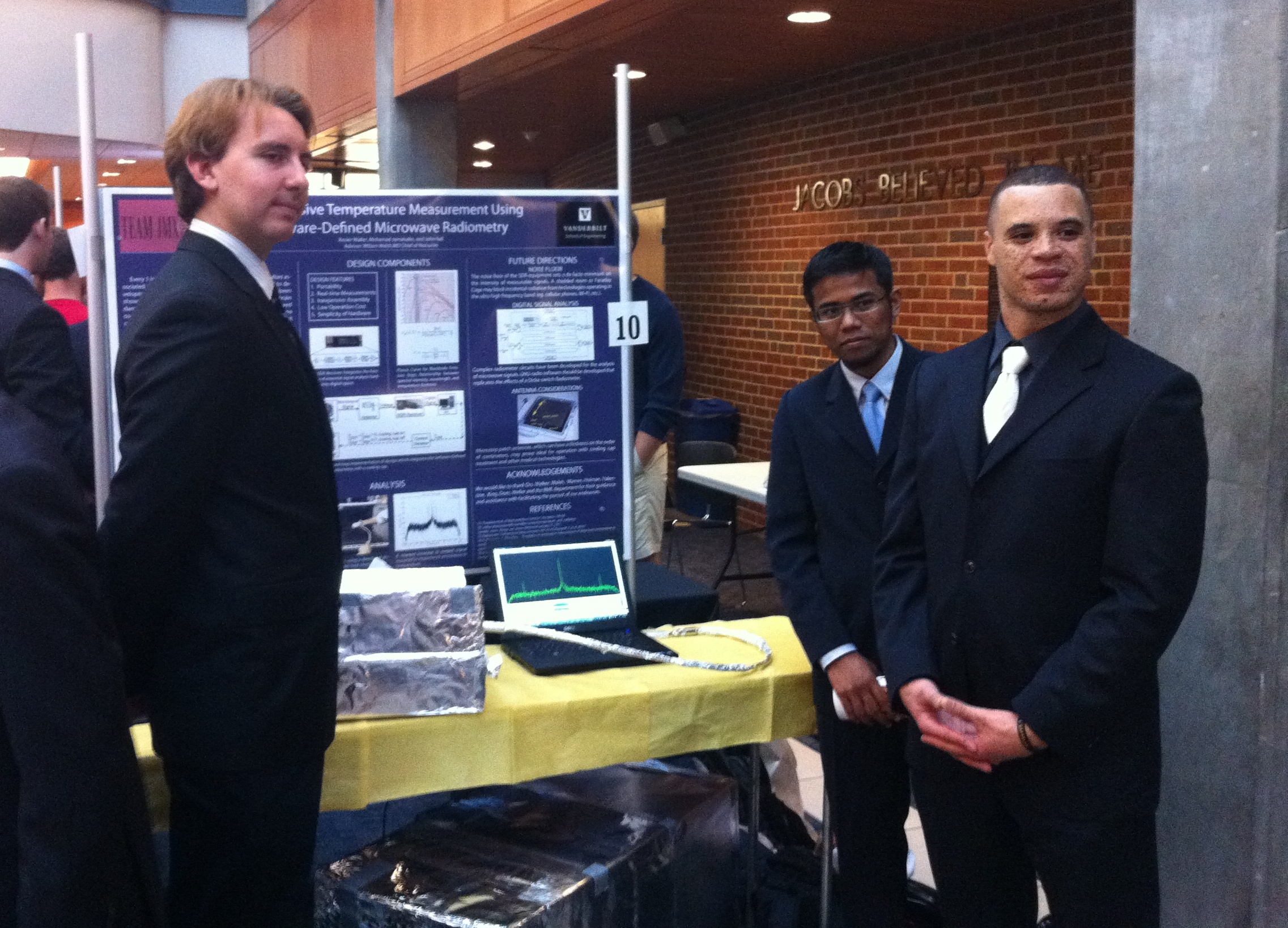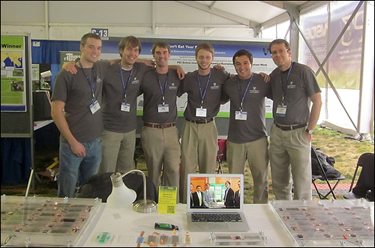VUSE Closes Out the Year in Award-Winning Style

Cornelius Vanderbilt acquired many unofficial titles throughout his career before offering the million-dollar gift that would be the birth of Vanderbilt University. To the world he was known as a businessman and one of the wealthiest Americans in history. To the city of Nashville he was known as a great philanthropist and champion of education. To his friends he was known as “Commodore.” As a master of steamboat design at the naissance of steamboat technology, he also rightfully earned the title of engineer.
Over a century after Cornelius’ death, the Vanderbilt School of Engineering still maintains the spirit of innovation, collaboration, and exploration embodied by the historical figure after whom our university was named. Each year, engineering students and faculty break new ground in research and extend their resources beyond campus and into the global community. This year was no different; in fact, the 2011-12 school year ended with quite a bang.
On April 19, senior engineers participated in the school’s annual Senior Design Day, which serves as the grand finale of each graduating student’s year-long design course. The students are assigned to team-based projects; receive project constraints, budgets, and deadlines; and are encouraged to pursue interdisciplinary collaboration. Every project must fulfill one basic requirement: It must solve a real world problem. Sponsoring groups and corporations bring these problems to the table, and students work throughout the year to create high quality solutions. Each team presents a functioning prototype and demonstration at the yearend Design Day.
This year, sponsors included the American Society of Civil Engineers, the Environmental Protection Agency, NASA, Nissan, the Tennessee Department of Transportation, and various medical departments on Vanderbilt’s campus. The projects spanned all engineering departments and demonstrated creative solutions to a variety of design problems, including: limited wheelchair functioning, the unstable foundation of a medical office building, inefficient traffic flow, the need for a non-invasive way to measure a child’s internal brain temperature, and much more.

The members of one senior design team took their prototype to the National Sustainable Design Expo in Washington, D.C. and received high awards for their project’s potential. Eric Dilbone, Phil Ingram, Trevan Locke, Paul McDonald, and Jason Ogg created a biohybrid solar panel that uses a protein found in spinach in place of high-cost silicon wafers. The design won the Marketplace Innovation and Student Choice awards, as well as a $90,000 grant from the Environmental Protection Agency to further develop the design, implement it in the field, or bring it to the marketplace.
In part due to Vanderbilt’s comprehensive core curriculum, even our engineering students know that “no man is an island” — neither does any one academic field reach its full potential without other sources of input. On April 22, the Vanderbilt Aerospace Club competed in NASA’s annual University Student Launch Competition in Toney, Alabama. The group won the Best Payload Design award for the third straight year, as well as a new distinction, the Educational Engagement Award. The latter was awarded for a collaborative initiative between the School of Engineering’s Aerospace Club and the Peabody College of Education and Human Development’s Department of Teaching and Learning. The team worked under faculty leadership in both schools to create and execute a bottle rocket-building STEM unit that was presented in three of Nashville’s most under-served middle schools.
While the School of Engineering maintains a student-centered focus that can be seen echoing across the entire campus, we would be remiss not to mention the accomplishments of its faculty and administrative leaders as well. Kenneth Galloway, Dean of the School of Engineering and Vanderbilt alum, has been named president-elect of the American Society for Engineering Education. Having served on the ASEE Deans Council and Board of Directors, he will officially assume the presidency in June 2013.
These notable accomplishments, while worthy endings to another remarkable school year, are truly just the beginning for the students who achieved them and the school that fostered them. To the graduating seniors taking their innovation, collaboration, and exploration out into the world, to the underclassmen who will be returning to continue their endeavors in the fall, and to the entering freshmen just waiting to jump in with both feet – we can’t wait to see what’s next.
